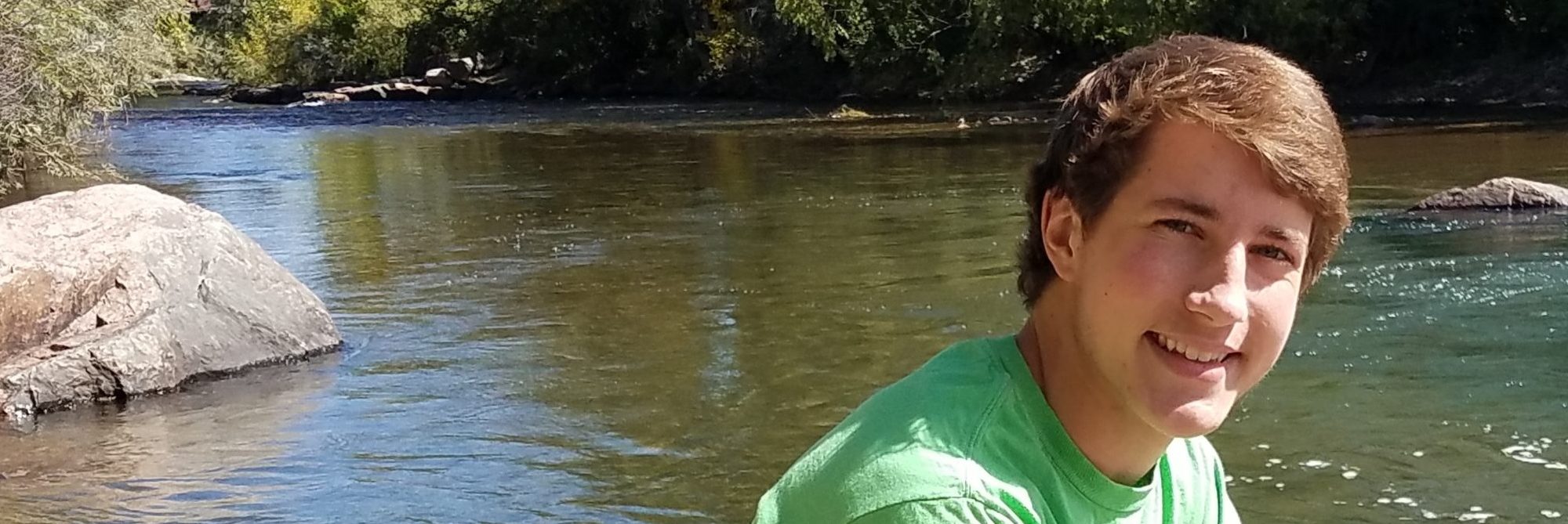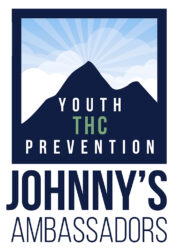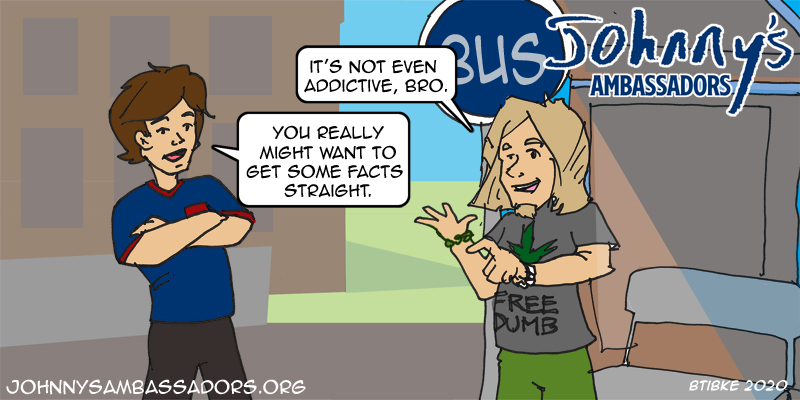By Laura Stack
I’ll start by answering the question in the title. According to the National Institute on Drug Abuse, YES, marijuana can be addictive. Marijuana use can lead to the development of problem use, known as a marijuana use disorder or THC abuse, which takes the form of addiction in severe cases. Recent data suggest that 30% of those who use marijuana may have some degree of marijuana use disorder.18 People who begin using marijuana before the age of 18 are four to seven times more likely to develop a marijuana use disorder than adults.19
Most of you reading this article know that my 19yo son, Johnny, died by suicide in November 2019. When he was 14, he asked me if I smoked pot when I was his age, and I replied honestly, I’d smoked it a few times in high school but didn’t like how it made me feel paranoid. I also explained the grass we smoked in the 70s and 80s was weak, unlike today.
I wish I’d been more educated about how potent it really is nowadays, so I could have explained to him about the impacts of nearly-pure THC products on his developing mind. It rarely used to exceed a 2-5% concentration of THC (or delta-9-tetrahydrocannabinol, the active ingredient in marijuana that makes users high). Now, the lowest plant strains of cannabis exceed 12.5% THC on average to 28%. More concerning, the wax or extract forms that most teens vape contain up to 90%+ THC, usually in various preparations of Butane Hash Oil called wax, honey, dab, shatter, or budder. When adolescents “do some dabs,” ONE HIT equals up to five joints, boosting the likelihood of addiction.
To add fuel to the fire, marijuana is toxic. Not only does it contain 3-5 times more pollutants than cigarette tobacco (including hydrogen cyanide!), THC most likely evolved as a natural insecticide.
Relatively Speaking…
Let’s look closer at the addiction question. An average of 9% of long-term marijuana abusers become addicted at a psychological level, which means biochemical changes in their brains caused by excessive use force them to keep using. This rises to 17% if the user starts in their teen years, as most do; how the body handles marijuana, especially in large doses, is markedly different among those who start smoking as adolescents. Addiction can rise to as high as 50% among those who use every day.
And then there’s the 30% or so of long-term users who become physically dependent on marijuana, suffering what some call “Cannabis Use Disorder.” Those suffering from such dependency experience negative physical reactions if they don’t get their fix. If you become physically dependent on a substance, addiction can soon follow.
The dependent and the addicted suffer from withdrawal affects if they try to stop using marijuana, including:
- Cravings
- Anger
- Aggression
- Irritability
- Nervousness
- Restlessness
- Anxiety
- Insomnia
- Bad dreams
- Depression
- Lack of appetite
- Weight loss
- Depression
- Abdominal pain
- Tremors
- Sweating
- Fever
- Chills
- Headaches
It’s a long, unpleasant list, and those are just the withdrawal symptoms. Marijuana turned my brilliant, funny, happy, loving, creative, intelligent son Johnny into a lazy, sleepy, angry, irritable, unambitious, more anxious, unfocused person by the age of 17. He entered his senior year of high school in August 2018 with a 4.0 GPA, and he barely graduated in May 2019 with four D’s through the hard work of teachers, counselors, and us to get him through.
Being vulnerable here, I admit my mindset was, “Ah, well, it’s clearly not affecting his grades.” And “Kids will be kids.” And “I smoked pot when I was his age, and it didn’t hurt me.” WRONG. WRONG. WRONG. The marijuana over time changed his brain, and we were too late—the damage had been done once we really understood his addiction. His brain had changed, and it didn’t go back, even when he finally realized the association and stopped the marijuana.
When children smoke pot, it can hurt some in any form, in any amount. You just don’t know which kids are going to have an impact on their minds—don’t let it be yours. Here are some of the effects adolescents could experience:
- Slow mental development.
- Permanently lower IQ.
- Kill motivation.
- Compromise judgment.
- Cause depression.
- Causes paranoia.
- Can cause psychotic breaks or psychosis.
- Trigger schizophrenia.
- Cause suicidal thoughts and suicide.
Some of these effects, such as transient psychosis, can occur with A SINGLE HIT. If continued over time as the brain is forming, schizophrenia and suicidal thoughts can result. This is what happened to my Johnny.
Get Serious!
There’s no doubt marijuana is addictive, and it can prove horrendously addictive. If an adolescent is using high-potency marijuana on a high-frequency basis, it’s almost a foregone conclusion there will be dependence leading to addiction with much increased risk of psychological issues. Getting kids to stop isn’t going to happen without some serious education and efforts by parents and kids alike. We must get through to our children about the effects of marijuana on their developing brains and how addicted they could become.
Please spread the word by forwarding this article to other parents and recommending they register for our newsletter and read our research.


